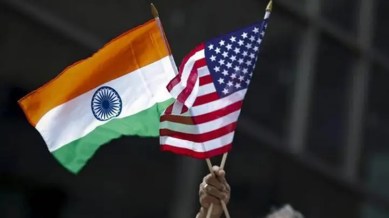WTO dispute settlement body revival faces delays over country differences: GTRI
This comes as the 164-member World Trade Organization (WTO) is set to gather next month in Abu Dhabi for the 13th ministerial conference (MC) to resolve different issues such as reforms in dispute settlement mechanisms, agriculture-related matters among other key issues.

Reinstating a fully functional WTO dispute settlement body to resolve trade disputes between countries could take longer than expected as there continues to be wide differences between developed and developing countries over the issue, a GTRI report said on Sunday.
This comes as the 164-member World Trade Organization (WTO) is set to gather next month in Abu Dhabi for the 13th ministerial conference (MC) to resolve different issues such as reforms in dispute settlement mechanisms, agriculture-related matters among other key issues.
monthly limit of free stories.
with an Express account.
Protectionism has been on the rise due to the lack of a functional dispute settlement body as the US, since 2017, has been blocking the appointment of new judges to the WTO’s seven-member appellate court as it believes that that the body is hurting its interest.
GTRI said that balancing India’s demands for an appellate body, S&DT (special and differential treatment) provisions, and fairness while addressing other members’ concerns, including transparency and legal certainty, will require significant compromise and negotiation.
“Reaching a consensus on reform of the dispute settlement system is complex, with developed and developing countries holding different priorities and concerns,” economic think tank Global Trade Research Initiative (GTRI) said.
GTRI Co-Founder Ajay Srivastava said that for India, reforming the dispute settlement system remains a crucial priority at the upcoming MC13. MC is the highest decision-making body of the global trade watchdog. Reforming the dispute settlement mechanism is essential, as without a reliable way to resolve conflicts between countries, WTO rules are ineffective.
“The proper functioning of the WTO Appellate Body has a disproportionate impact on the United States because more than one- quarter of all disputes at the WTO have been challenges to US laws or other measures. Specifically, 155 disputes have been filed against the United States and no other member has faced even a hundred disputes,” the US had said in a report in 2020.
The United States Trade Representative (USTR) in its report had pointed out that up to approximately 90 percent of the disputes pursued against the US have led to a report finding that the US law or other measure was inconsistent with WTO agreements. “This means that, on average, over the past 25 years, the WTO has found a US law or measure WTO-inconsistent between five and six times per year, every year,” USTR added.